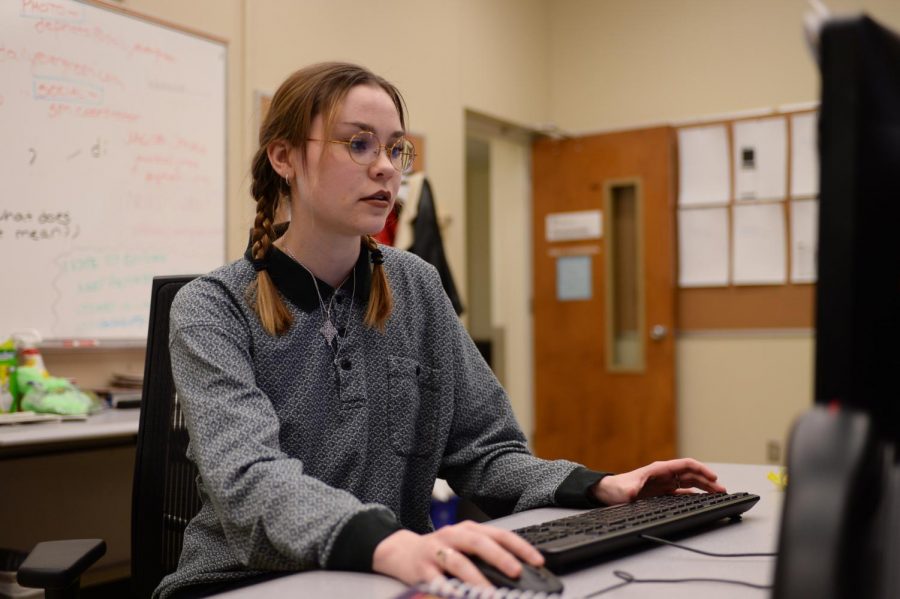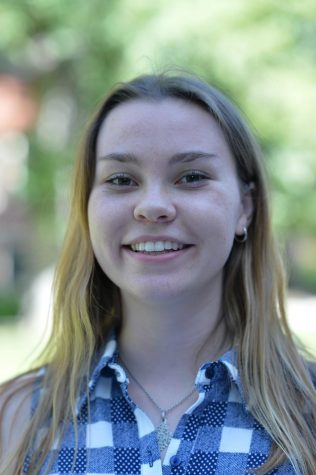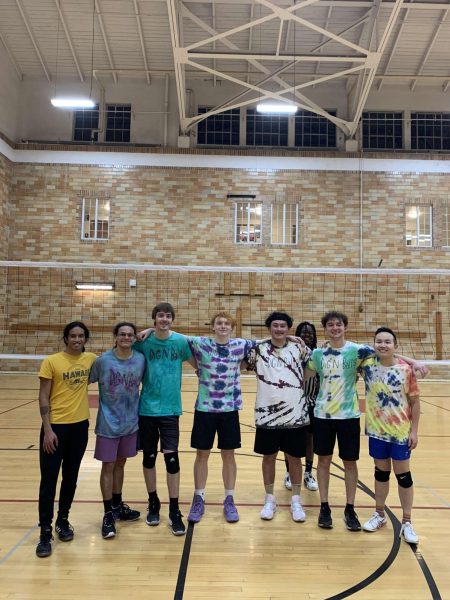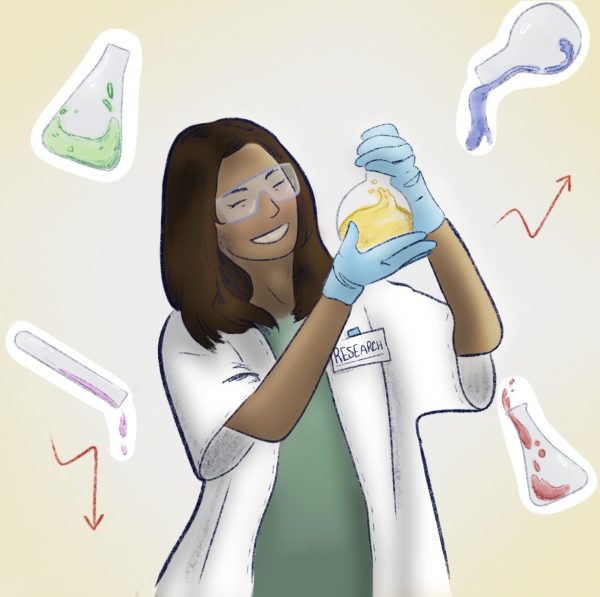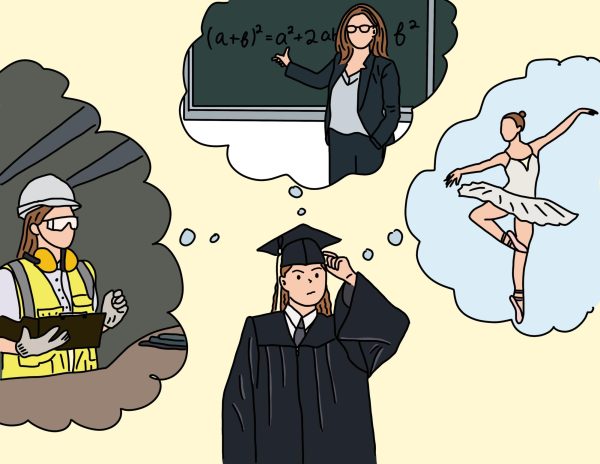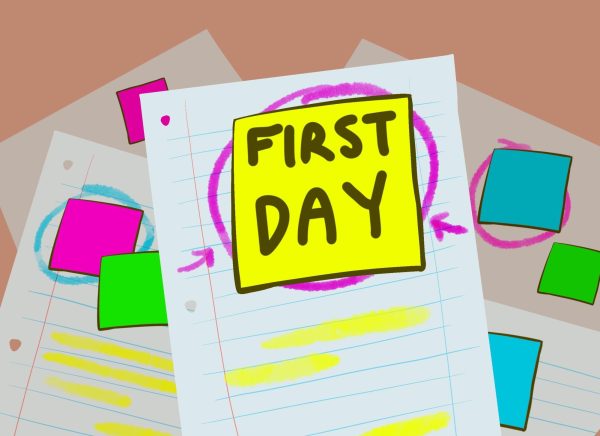Letter from the Life editor: Appreciating the humanity of journalism
Reporting benefits writers, subjects of stories alike; this editor loved getting back in the game
JACQUI THOMASSON | THE DAILY EVERGREEN
Life editor Maggie Quinlan edits stories in the newsroom Sunday night.”These stories matter to us,” she says. “These stories would matter to the archaeologist who dusts this Monday paper off in 3019.”
March 18, 2019
Over spring break I had the opportunity to get back to interviewing and writing. I haven’t had the time to report while I’ve been running this section.
I couldn’t have been happier. I can barely believe this job exists.
I’m studying psychology because I wanted to become a therapist. I think conversations are powerful. If I can make someone feel important just by asking questions, that’s a meaningful use of my humanity.
I’ve learned that an interview with a reporter is a gift to both participants. I get the information I need to write. But also with every question I ask, there is an implied message to the interviewee.
The message is: your story matters. It matters to me. I think it will matter to 10,000 readers.
This week I got to interview a former high school secretary who took in a homeless teen. He faced the kind of poverty and hardship I think some Americans would deny exists in our country. Against all odds, he is now a D1 athlete at WSU.
Now you’ve read the story, and I bet you think it matters. I hung up from that phone interview crying happy tears. I wondered who interviewed this woman before, if anyone. And of all people, I get to be the one to eternize this story in print.
This week I also spoke with an architecture professor and an architecture student who, with 13 other students, put together a project that could spark massive and radical changes in Pullman’s design.
These stories matter to us. These stories would matter to the archaeologist who dusts this Monday paper off in 3019. The people in these stories are inherently interesting. But they are just people. If their schedules were slightly different, had they missed my email, or had I never had the idea to talk to them, these stories would not print today. And if they hadn’t printed today, they might have never printed.
How monumental?
One more thing. I couldn’t explain to you the logistics of it, but I believe every person who reads a story empowers the story’s subject — not just by chance, not just because investors stumble on good ideas in the paper. Just the buzz of interest, I believe, is powerful enough.
So I feel very lucky. I am fortunate to have the time to talk to people and write about it. I am so lucky that you care to read this paper. Thank you for reading this paper.


